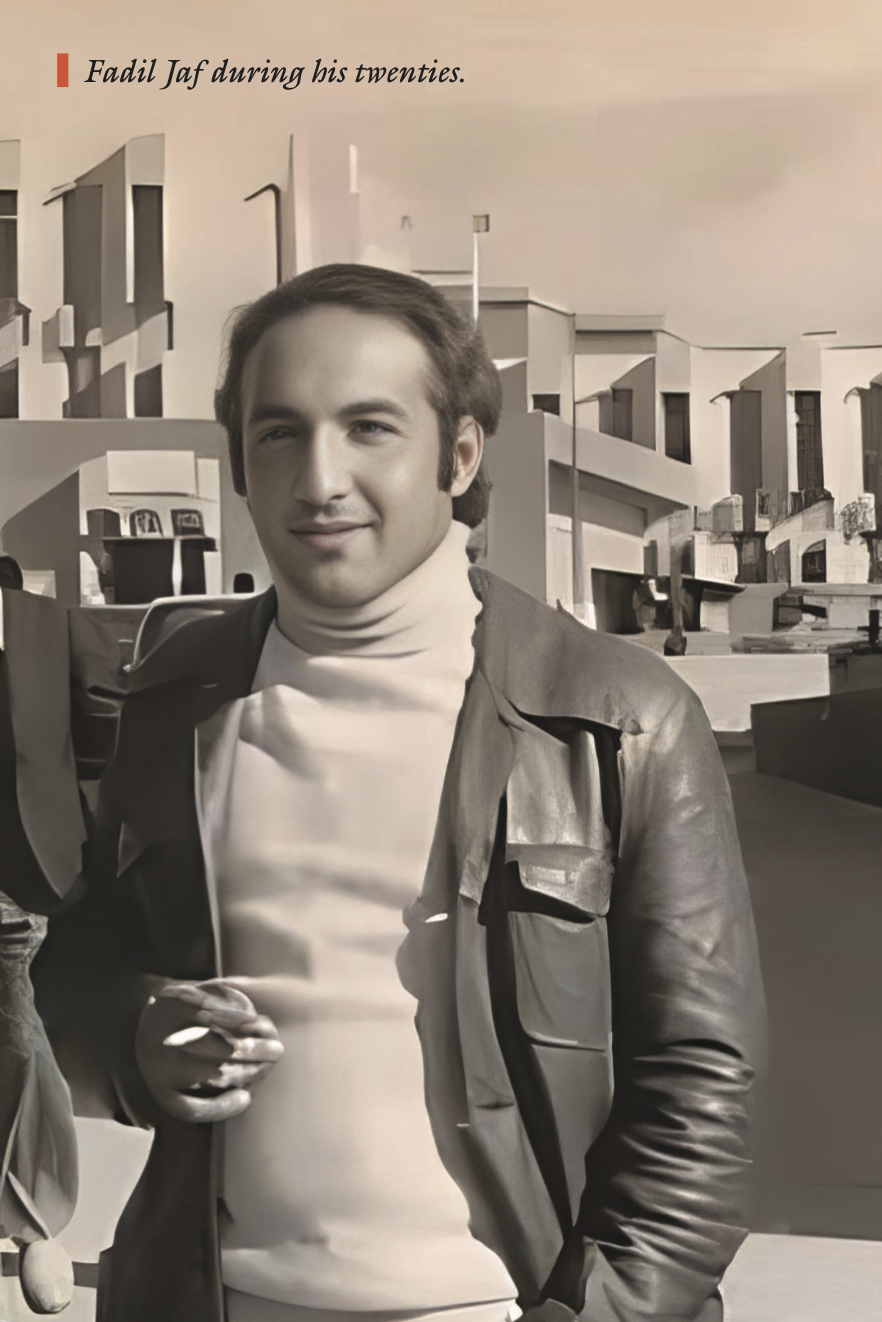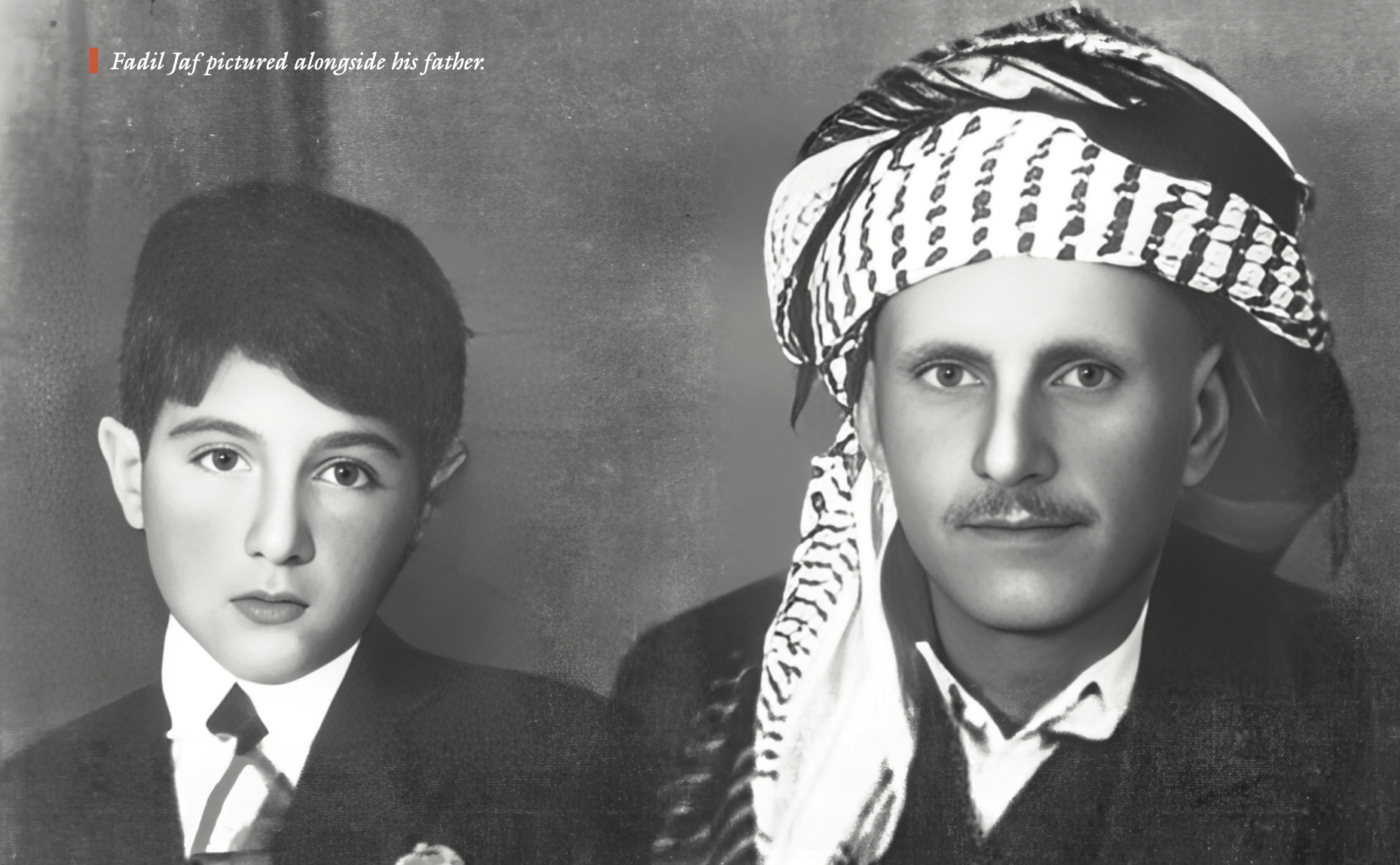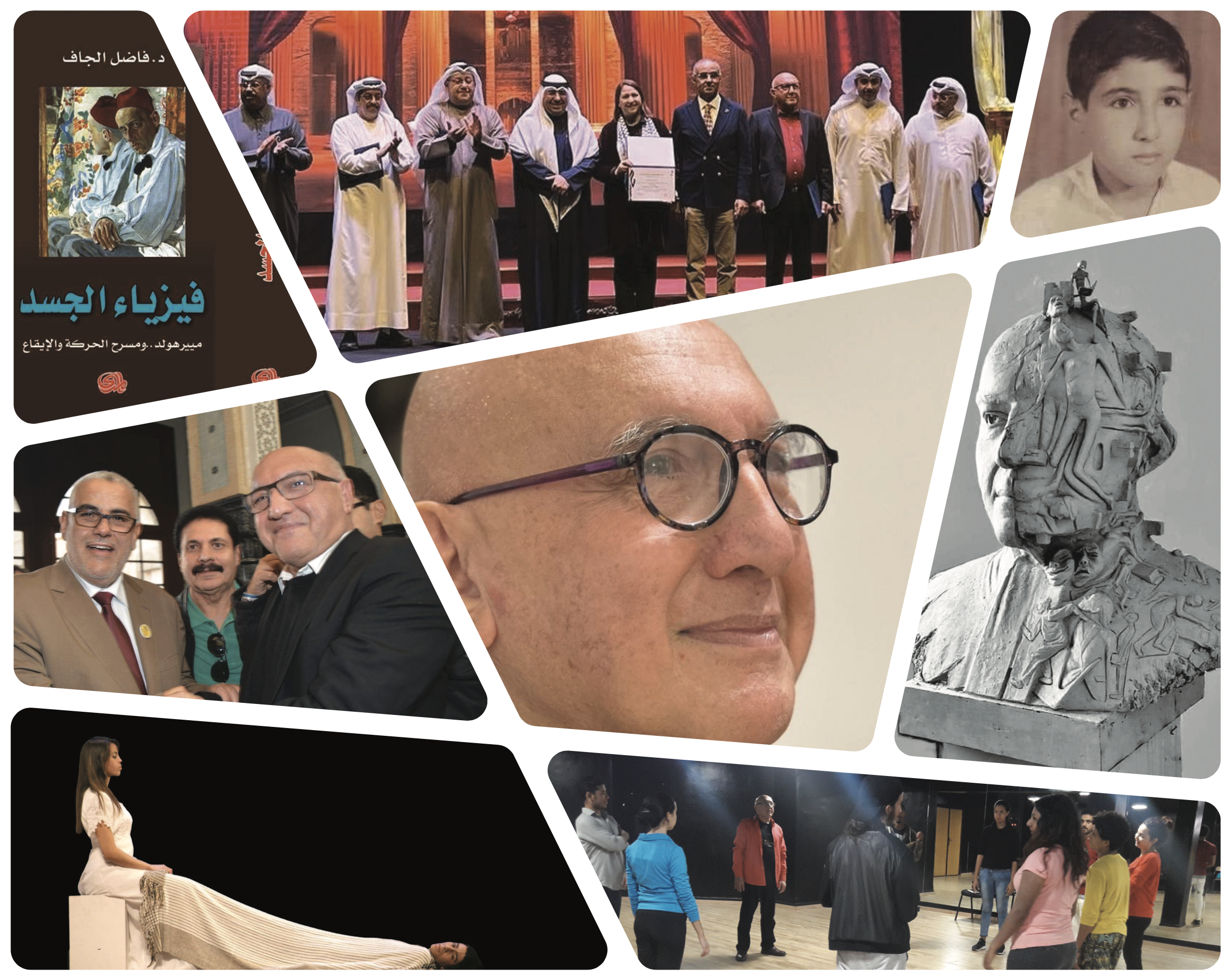Fadil Jaf – now a diligent scholar, cosmopolitan director and actor, and prolific translator – was passionate about music since childhood. In his early youth, he was influenced by existentialism and is one of the most prominent Iraqi Kurdish creative theater directors active today. A key figure representing Iraqi culture in Western and Arab artistic spheres, Jaf holds many theatrical workshops on biomechanics in the Gulf countries and North Africa and participates as a researcher in Arab theatrical seminars and forums.
Prior to resettling in Europe, Jaf was involved in directing several plays in Sulaymaniyah and Kirkuk, including The Martyr’s Mother, The Peshmerga, Ras al-Shalila, and The World in the Palm of a Hand, to name but a few.
Reimagining the theater
Jaf is well versed in the contemporary developments in the art of drama, making important contributions to the field of theater by attempting to combine theory and practice. This approach is apparent in his efforts to add interesting and attractive touches to theater performances in Sweden, all of which appealed to audiences and garnered acclaim from critics.
Perhaps one of his most prominent achievements in Sweden is directing In the Broad Sea by the Polish avant-garde writer, Slawomir Mrozek, which ran at the Roselund Theater (it is now called Teater Tre). Another of Jaf’s plays was One Thousand and One Nights, performed at the Helsingborg City Theater, which made a lasting impression on Swedish theatergoers. I had the opportunity to see it filmed when it was shown on the sidelines of the Kuwait Theatre Festival in 2008.

In this play, Jaf referenced Middle Eastern culture, employed Arab actors, and used oriental music, which was performed beautifully by Swedish musicians. In addition to exploiting light and color, he entwined decoration and sound effects in a striking manner, leaving viewers gripped with anticipation for what would come next. The play recounted a Middle Eastern classic in a graceful, modern style characterized by a mixture of fantasy and rituals, depicting adventures with deep historical roots.
Jaf is involved in children’s theater as well. He has directed many plays for children in Swedish, including The Prince with the Hat Underground by the Swedish writer Nina Olsson; The Abandoned Doll by Alfonso Sastre; The Girl and the Bear, which is based on a Russian fairy tale; and the famous fairy tale The Little Red Riding Hood.
Not only has Jaf produced plays in Sweden, but he has also directed several plays in the UK, Iraq, and Morocco, such as Return to the Desert, by the French writer Edouard Coultes; The Ghost Sonata, by August Strindberg, performed at Bahnini Hall in Rabat; A Dream Play by Strindberg, at the Mohammed V National Theater, Rabat; Poisons by Strindberg, in London; Tartuffe by Molière, at Man in the Moon Theater, London; and Rashomon at Kenfaoui Theater at the High Institute of Theatrical Arts and Cultural Animation in Rabat.
Additionally, he has produced plays in Russia, such as Playing with Fire by Strindberg at Chernoe Rychkov Theater in Saint Petersburg, Russia. He directed The Storm by the Russian writer Alexander Ostrovsky at the People’s Theater in Erbil.

Translation and research
In 2004, Jaf embarked on the translation and direction of Ariel Dorfman's "Death and the Virgin" into Kurdish. He readied it for staging by the Ararat Group, featuring a cast including Telar Hirani, Mariwan Kamal, and Adel Abdullah.
The show was first performed at Ingrid Hall in Gothenburg, Sweden, then in Erbil and Sulaymaniyah in 2006. Although the play takes place in Chile, Jaf succeeded in giving it a comprehensive character to suit any time and place ruled by a totalitarian dictatorship. Jaf used the methods of Konstantin Stanislavski and Vsevolod Meyerhold to produce the play, combining the psychologically realistic approach with the biomechanical approach, which is based on movement, emphasizing the visual dimension and a grotesque view of reality. In doing so, he intended to produce it in an open space, allowing the audience to focus on the dramatic values and emotional aspects that abound in the text, as the use of empty space emphasizes the actors’ deep and simple performance.
In addition to his experience directing, Jaf was active in adapting a group of plays taken from literary and dramatic texts, including The Emerald City and The Sisters, both of which are based on One Thousand and One Nights. He also adapted Gilgamesh, and The Soldier and the Witch, which is based on a tale by Hans Christian Andersen. He has translated a number of plays from Swedish to Arabic.

His translation of three plays by August Strindberg (The Swan, Playing with Fire, and Poisons) was published by Darul Nu’man in 2004. He has written many articles and papers about theater, including a series of articles about the Meyerhold approach and biomechanics, a field in which he specializes. These seminal papers were later published in the book The Physics of the Body: Meyerhold’s Theater of Movement and Rhythm, issued in two editions, the first published by the Department of Culture and Information in Sharjah, and the second by Dar Al-Mada.
Jaf has also contributed to academia by analyzing the works of some key Swedish directors, such as Ingmar Bergman, Torsten Flink, Susan Astin, Peter Askarsson, Richard Guenther, and Valdimir Holm. His analysis was compiled in a monograph entitled Critical Views and Opinions in Contemporary Swedish Theater published by Dar Al-Manfa in Sweden, and then reprinted by Aras Publishing in Erbil. I was not able to get a copy of the book, but I read reviews of it by Fakher Jassim and Ahmed Muhammad Amin. The former states that it is a study that sheds light on the development of the theater movement in Sweden – describing institutions, directors, writers, and theatrical productions – as analyzed according Jaf’s academic and practical experiences gained from directing many plays around the world.
Jaf’s academic portfolio extends to include workshops on theatrical direction, acting, and the biomechanical curriculum. He has also trained playwrights and teachers specializing in children’s and youth theater across various institutions in Sweden, the UK, Finland, Italy, Iraq, the UAE, Bahrain, and Kuwait, and led the theatrical directing workshop at the Sharjah Institute.
He has facilitated academic workshops at renowned venues like Teatro Zag-Chorny Richie Theater in St. Petersburg, Gavleborg Theater in Sweden, the Department of Theatre and Performance at Goldsmiths College, University of London, and Helsinki Theatre Academy in Finland. Additionally, he pursued his theater studies at Goldsmiths University in London and participated in workshops and training programs at various institutions including Scarborough College, the Royal Academy of Arts, and Rose Brudford College in London. He also engaged with the Theatre Academy in Malmo, Sweden, the La MaMa Umbria International Theater Center in Italy, and the National Council for Culture and Arts in Kuwait.
Awwad Ali is a novelist, critic, and theater researcher originally from Kirkuk. He has penned 12 books on theater criticism and published eight novels.

